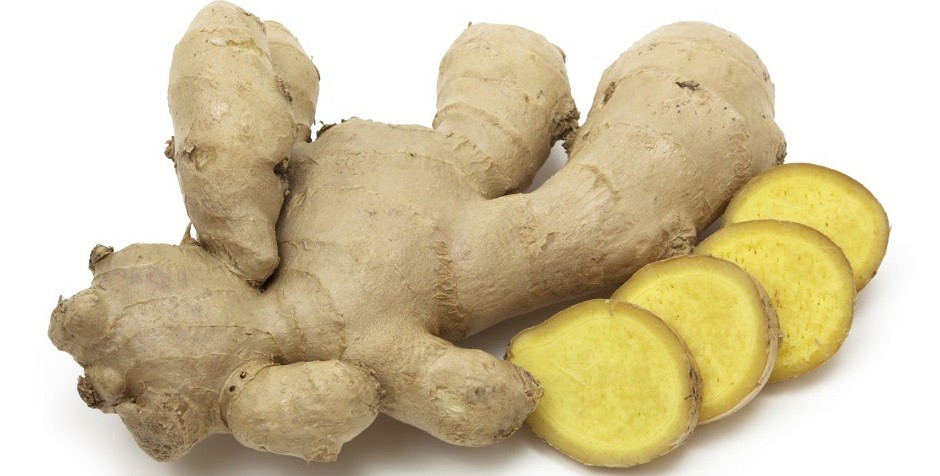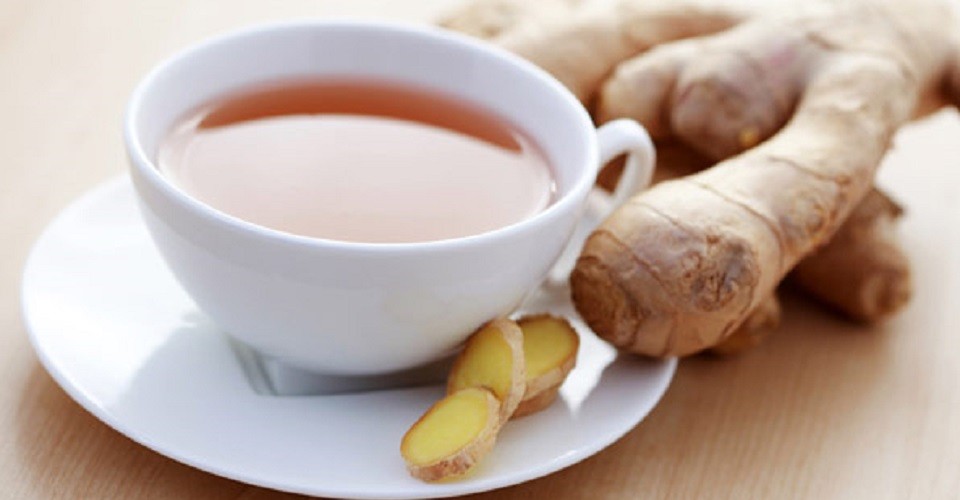Top 10 Indispensable Health Benefits of Ginger

Ginger is one of the most common roots that are looked down upon by many but with tremendous health benefits. After reading this article, we believe you’ll no longer leave it out of your diet; not even for a day.
What is Ginger?
Not everybody may know this plant we’re talking about. Therefore, before we get into discussing its numerous benefits, let’s get to know the plant.
Ginger is the underground rhizome of the ginger plant with a firm, striated texture. It is covered with a brownish skin that may either be thick or thin. This depends on whether the plant was harvested when it was mature or young. The flesh can be yellow, white, or red in color – depending upon the variety.
Origin
The root or underground stem (rhizome) of the plant can be consumed fresh, powdered, dried as a spice, in oil form or as juice. Ginger is a flowering plant that originated from China. It is part of the Zingiberaceae family, alongside cardamom and turmeric, and is commonly produced in India, Jamaica, Fiji, Indonesia, and Australia.
The following are the health benefits of ginger which you can’t afford to do without:
1. Ginger Boosts Metabolism and Burns Fat
Ginger is a metabolism boosting substance that may temporarily increase thermogenesis in your body, where your body burns stored up fat, with beneficial impacts on overall metabolism and fat storage. Research suggests that consuming thermogenic ingredients like ginger may boost your metabolism by up to 5 percent, and increase fat burning by up to 16 percent.
Ginger may even help counteract the decrease in metabolic rate, this suggests that it may be useful for weight loss.
2. Relieves Digestion Related Problems
Ginger has a long history of use for relieving digestive problems such as nausea, loss of appetite, motion sickness and pain.
Digestive issues
The phenolic compounds in ginger are known to help relieve gastrointestinal irritation, stimulate saliva and bile production and suppress gastric contractions and movement of food and fluids through the GI tract.
Nausea
Drinking ginger tea or chewing it raw is a common home remedy for nausea and vomiting during cancer treatment, cold recovery, menstrual pain, hangovers, and early morning sickness during pregnancy.
3. Helps You Cope in Extremely Cold Weather
During cold weather, drinking ginger tea is a good way to keep warm. It is diaphoretic, which means that it promotes sweating, working to warm the body from within. As such, in the wake of a cold, ginger tea is particularly useful. To make the tea at home, slice 20-40 g of fresh ginger and steep in a cup of hot water. Adding a slice of lemon or a drop of honey adds flavor and additional benefits, including vitamin C and antibacterial properties.
It clears the ‘microcirculatory channels’ of the body, including clearing your sinuses that can flare up seasonally or during colder months. It has a warming effect and stimulates circulation.
Moreover, if you’re suffering from common respiratory diseases such as a cough, ginger aids in expanding your lungs and loosening up phlegm because it is a natural expectorant that breaks down and removes mucus. That way, you can quickly recover from difficulty in breathing.
4. Pain reduction
A study involving 74 volunteers carried out at the University of Georgia found that daily ginger supplementation reduced exercise-induced muscle pain by 25%. It is also used sometimes for chest pain, low back pain, pain from arthritis and stomach pain. Aside from eating it, you could also float some ginger essential oil in your bath to help aching muscles and joints. These effects are believed to be mediated by the anti-inflammatory properties it contains.
As mentioned earlier, ginger has also been found to reduce the symptoms of dysmenorrhea (severe pain during a menstrual cycle). In one study, 83% of women taking ginger capsules reported improvements in pain symptoms compared to 47% of those on placebo.
5. Fights Inflammation
Ginger has been used for centuries to reduce inflammation and treat inflammatory conditions. Other uses include pain relief from arthritis or muscle soreness, menstrual pain, upper respiratory tract infections, cough, and bronchitis. One of the chemicals in the plant is also used as an ingredient in laxative, anti-gas and antacid medications.
6. It Sharpens Appetite
Haven’t been feeling hungry? Eat a little fresh ginger just before a meal to inspire your appetite and activate your digestive juices. It also improves the absorption and assimilation of essential nutrients in the body. It does this by stimulating gastric and pancreatic enzyme secretion.
7. Used in treating Cancers
For colon cancer prevention, A study at the University of Minnesota found that ginger may slow the growth of colorectal cancer cells. And for ovarian cancer treatment, the powder also induces cell death in ovarian cancer cells.
8. Strengthens Immunity
Ginger helps improve the immune system. Consuming a little bit of it a day can help foil potential risk of a stroke by inhibiting fatty deposits from the arteries. It also decreases bacterial infections in the stomach and helps battle a bad cough and throat irritation.
9. Ginger Lowers Blood Sugar and Reduces Risks of Heart Disease
This area of research is relatively new, but it is suggesting that ginger may have powerful anti-diabetic properties.
In a recent 2015 study of 41 participants with type 2 diabetes, 2 grams of the powder per day lowered fasting blood sugar by 12%. It also dramatically improved HbA1c (a marker for long-term blood sugar levels), leading to a 10% reduction over a period of 12 weeks.
There was also a 28% reduction in the ApoB/ApoA-I ratio, and a 23% reduction in markers for oxidized lipoproteins. These are both major risk factors for heart disease.
10. Ginger Has the Power to Make You Lively
Maybe, that is exactly why we have the word ‘ginger’ to mean ‘to make more lively’. We must have heard people say ‘ginger up the show’ and things like that. You may be wondering how this works but if you are feeling a bit cold, weak, dull, heavy, bloated, nauseous, and all those other emotions that are enemies to liveliness, its time to consume some gin.
You could chew it raw (if you’ve got the nerves), and then bring it down with a cup of hot water; shred or grind it, then dilute with hot water and gulp down. You could as well slice it, add to clean boiling water and drink at the desired temperature.








